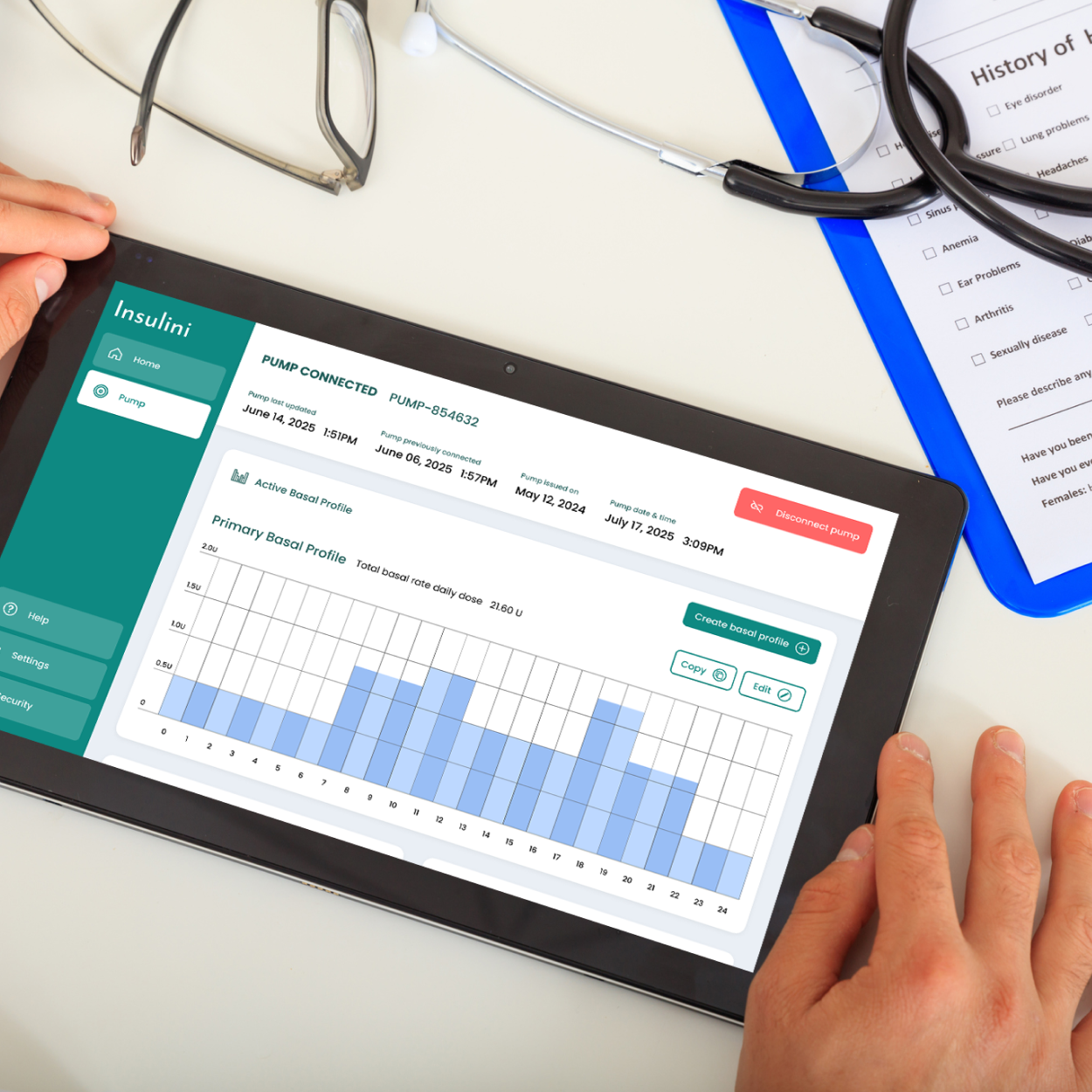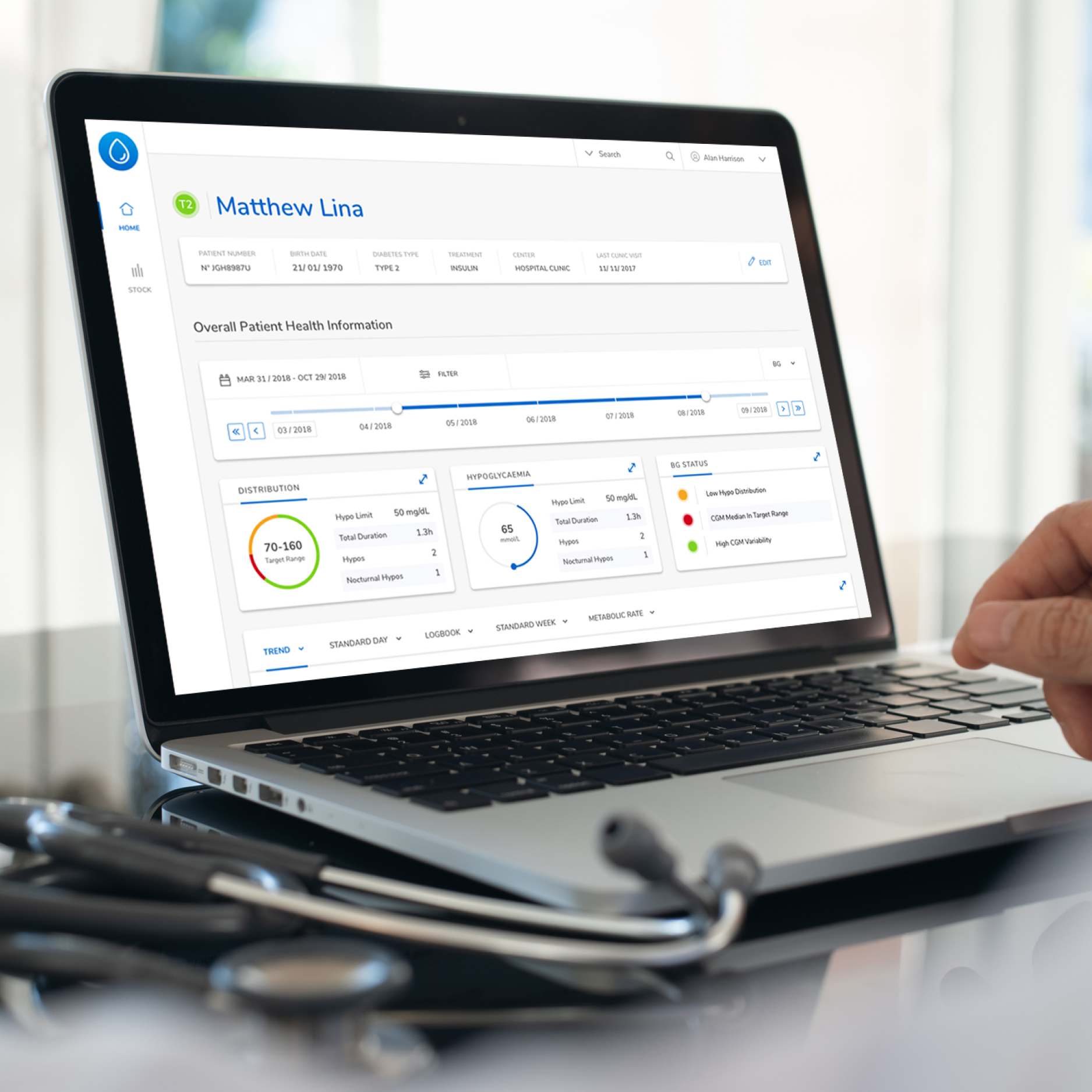Boosting the reach, effectiveness and impact of diabetes coaches and educators.

Challenge
Help diabetes coaches convince their patients to adopt healthy lifestyle changes.
Diabetes coaches and educators' struggle to convince their Type 2 diabetes patients of the urgency to change their lifestyle and to motivate them to adopt and maintain healthy behaviours to delay disease progression. This can lead to:
- Regular insulin injections and additional medications.
- Additional health complications.
- Poor quality of life.
- Increased burden and costs on healthcare systems.
Approach
Research
Research with diabetes coaches & type 2 diabetes patients uncovered an insight for coaches to leverage the fear of insulin as a motivating factor.
Design
We conducted a user-centered design process creating the solution iteratively with real user input.
Develop
Using Agile development with detailed documentation we developed a secure cloud ecosystem and web & mobile applications.
Solution
An AI powered platform to empower diabetes coaches and educators to track and manage their patients’ disease progression.

Predict long-term health status and set SMART goals
Demographic and lifestyle information is combined to create a "digital twin" of the patient.
A validated physiological model is used to predict patients' long term health status and create personalised SMART health goals.

Support diabetes coaches and patient population scaling
Coaches can use the platform to streamline their workflow and leverage predictive analytics to proactively identify and engage with struggling patients.

Behavioural nudges and success optimisation
Easy to use AI powered mobile application helps patients automatically track progress, engage with coaches and achieve SMART goals.
Outcome
Majority of patients' trialled reported clinically significant reductions to their A1C.
For Patients’
Empowers them by helping to build and maintain healthy behaviours that improve their overall health, well being and prognosis.
For HCPs
Ability to take on more patients by improving their ability to motivate patients in adopting sustainable behaviours.
For Payers
Reduced costs by delaying or mitigating the need for insulin therapy, fewer cases of co-morbidities and decreasing the number of ER visits.




